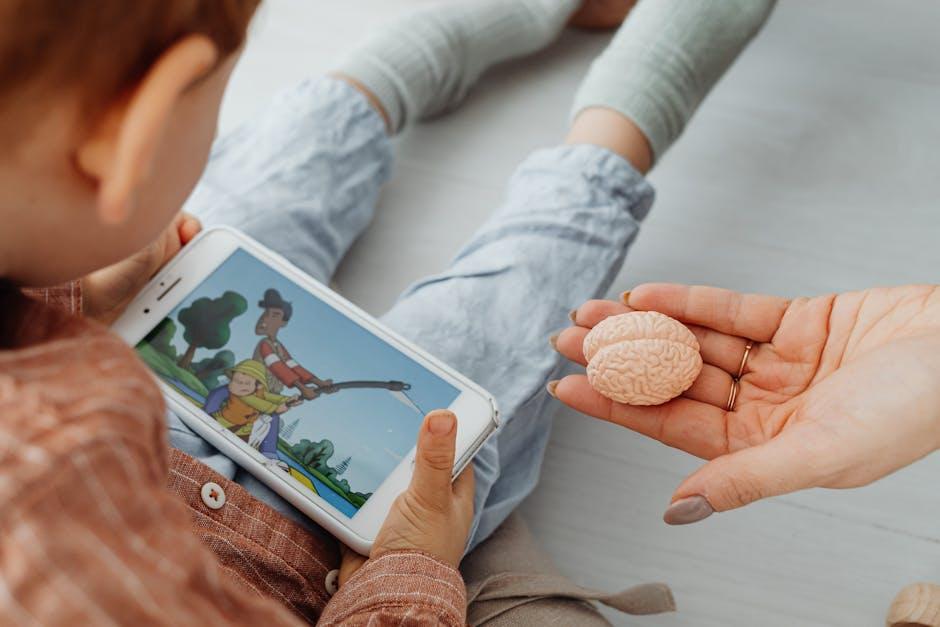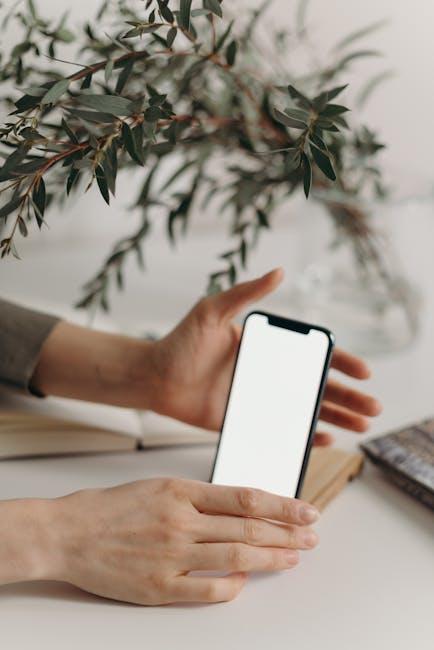In an age where our smartphones are never far from reach, they’ve evolved from simple communication tools into extensions of our very minds. Acting as calendars, information vaults, and decision aids, these digital companions have earned the nickname “second brains.” But as we offload more memory, focus, and even critical thinking onto these sleek devices, a question emerges: Are phones empowering us with enhanced cognitive abilities, or are they quietly eroding our mental independence? This article explores the complex relationship between humans and their pocket-sized partners, weighing the benefits and potential drawbacks of entrusting our minds to technology.
The Cognitive Convenience of Phones as External Memory

Our phones have transcended their original purpose of communication to become dynamic repositories of information-a digital extension of our memories. By storing countless notes, reminders, photos, and passwords, these devices ease the cognitive load, allowing us to offload details that might otherwise slip through the cracks. This externalization not only saves mental energy but also streamlines decision-making and problem-solving, freeing our brains to focus on creativity or complex tasks rather than mere data recall. In a sense, they serve as a convenient mental filing cabinet that we can access literally at our fingertips, anytime and anywhere.
However, this convenience comes with its own set of paradoxes. While our phones can automate memory management, they might also erode our natural recall abilities if we become overly dependent. The human brain thrives on active engagement-constantly retrieving and encoding information-whereas outsourcing too much to our devices risks cognitive passivity. To better understand this trade-off, consider the following balance:
| Benefits | Potential Drawbacks |
|---|---|
| Instant access to vast information | Reduced ability to memorize details |
| Enhanced organization with reminders and calendars | Dependency on technology for basic tasks |
| Less mental clutter, more focus on higher-order thinking | Risk of distraction and fragmented attention |
- Offloading: Frees up mental space.
- Dependency: Can weaken native memory skills.
- Convenience: Enables multitasking and quick referencing.
- Distraction: Might impair sustained concentration.
Balancing Dependency with Mental Resilience

In today’s hyper-connected world, the challenge isn’t just about relying on our phones-it’s about maintaining a healthy mental balance while doing so. Smartphones can act as external memory banks, offloading cognitive load by remembering appointments, contacts, and even grocery lists. But this convenience can create a subtle tether, risking a weakening of our own mental resilience if we rely too heavily. Cultivating mental toughness means intentionally engaging our brains in problem-solving, memory exercises, and critical thinking, rather than defaulting to digital dependence for every small need.
Building this equilibrium involves practical daily habits that strengthen cognitive autonomy without sacrificing the benefits smartphones bring. Consider adopting some of the following strategies:
- Scheduled phone-free times to encourage mindful presence and reflection.
- Memory challenges such as recalling a phone number or a shopping list before checking the device.
- Using smartphones as tools, not crutches, reserving their use for tasks that enhance productivity or creativity.
- Engaging in offline activities like reading, journaling, or face-to-face conversations to strengthen mental agility.
| Strategy | Benefit | Example |
|---|---|---|
| Phone-free hours | Boosts mindfulness | Evening device detox |
| Memory exercise | Improves recall | Recite a number from memory |
| Selective phone use | Enhances productivity | Use apps for creativity, not distraction |
Navigating the Impact on Attention and Creativity

Smartphones, acting as our digital extensions, have undeniably reshaped how we allocate attention. This permanent tether to information floods the brain with constant, shifting stimuli, often fragmenting focus and making sustained concentration a challenge. Yet, this digital stream also cultivates a new kind of adaptability – the ability to filter and process diverse inputs rapidly. Instead of traditional linear thinking, the mind learns to multitask and pivot swiftly, a skill both lauded and critiqued. The paradox lies in balancing these dynamics:
- Does frequent distraction fracture creativity or fuel innovative cross-pollination?
- Can deliberate digital detoxes recalibrate attention spans, enhancing depth in thought?
- Is creativity hindered by instant access to answers, or inspired by the scaffold of endless ideas?
Consider this simplified comparison illustrating attention and creativity in different contexts:
| Context | Attention | Creativity |
|---|---|---|
| Uninterrupted Focus | High Sustainability | Deep, Original Ideas |
| Phone-Driven Switching | Fragmented | Rapid Idea Generation |
| Purposeful Tech Break | Refreshed Concentration | Enhanced Insight |
Navigating this realm requires mindful awareness of when technology serves the mind’s expansive potential versus when it dilutes its power to focus. Smartphones can be powerful allies in creativity if wielded with intentionality, structuring moments of inspiration beyond the noise.
Practical Strategies for Healthy Phone Integration

To harness the benefits of smartphones without falling prey to distraction, it’s vital to establish clear boundaries. Start by designating tech-free zones in your home, such as the dining area or bedroom, to foster genuine connections and restful nights. Utilize built-in features like app limiters or “Do Not Disturb” modes to create intentional pauses from notifications. Consider batching your phone use into specific time blocks rather than sporadically reaching for it throughout the day. This approach not only reduces cognitive overload but also boosts your focus on the present moment.
Another powerful strategy is curating content and apps that enhance your productivity rather than fragment your attention. Regularly review your home screen and uninstall apps that encourage endless scrolling or offer minimal real value. Replace mindless browsing with tools for learning, creativity, or mindfulness. Here’s a simple comparison to guide your choices:
| Detrimental Apps | Helpful Alternatives |
|---|---|
| Social media feeds | Educational podcasts |
| Endless news cycles | Focused news digests |
| Gaming distractions | Brain-training puzzles |
| Random video platforms | Guided meditation apps |
- Prioritize mindful scrolling: Limit screen time with purpose.
- Set notification priorities: Allow only essential alerts.
- Use phone as a tool, not a crutch: Employ apps that enrich your life.
In Conclusion
In the end, our phones reflect the dual nature of the minds they mimic-brilliant yet vulnerable, empowering yet entrapping. As we continue to weave these digital companions into the fabric of our daily lives, the question isn’t simply whether they are helpful or harmful, but how we choose to strike a balance. By becoming mindful architects of our own mental ecosystems, perhaps we can transform phones from mere extensions of memory into true partners in thought-tools that amplify our humanity without diminishing it. The second brain may be in our hands, but the true power still lies within us.











